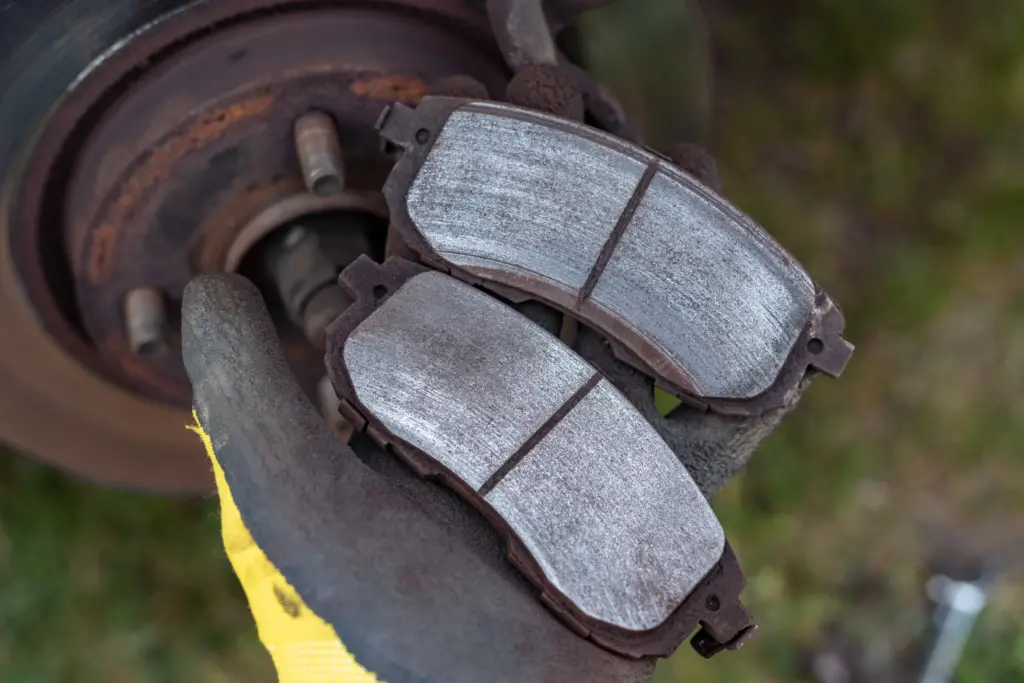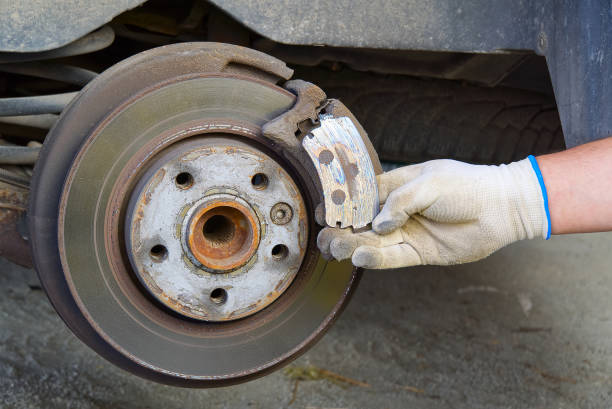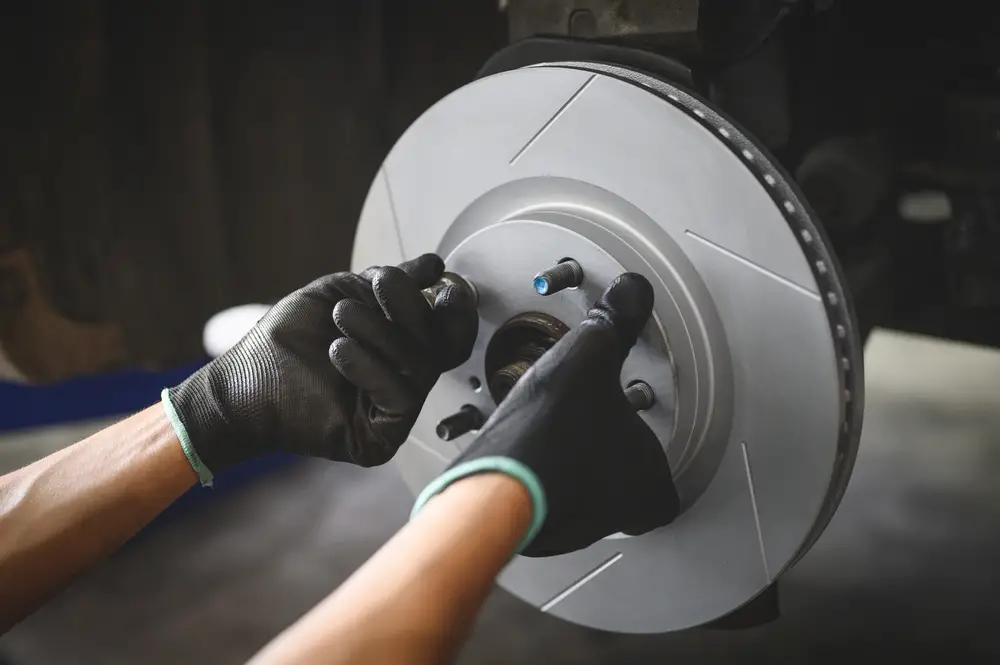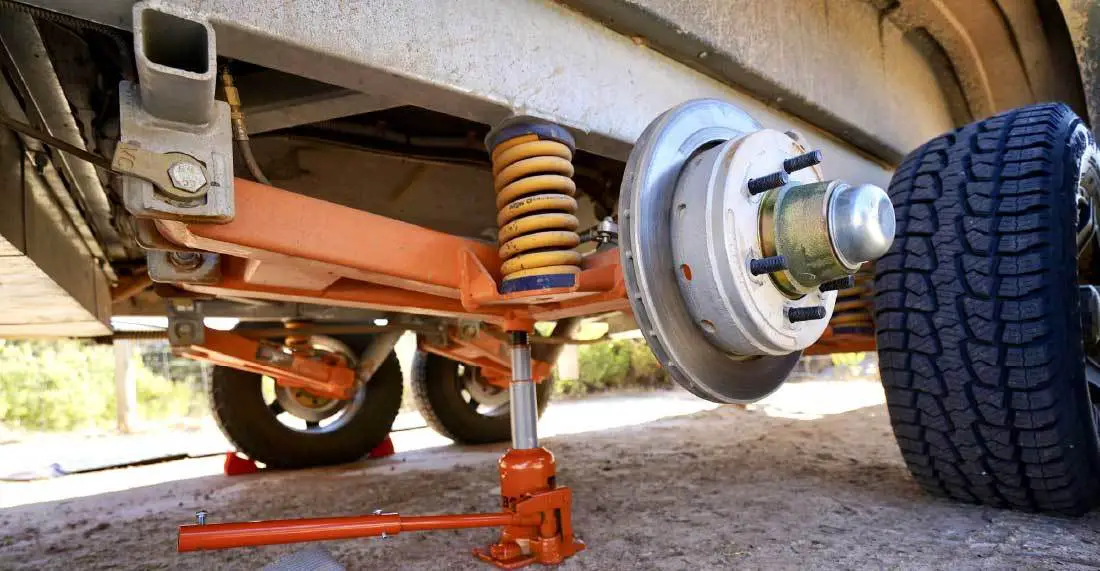How Long Do Brake Pads Last: The Average Lifespan of Brake Pads
Knowing the lifespan of brake pads is essential for maintaining a safe and reliable braking system in your vehicle. Brake pads are a crucial component that undergoes significant wear and tear during everyday driving. Over time, they gradually wear down due to friction and heat generated when braking. Understanding how long brake pads typically last can help you anticipate when they might need replacement, ensuring optimal braking performance and safety on the road. In general, brake pads last 30,000-35,000 miles in urban use.
In this guide, we will explore the factors that influence the longevity of brake pads and provide general guidelines on their expected lifespan. It’s important to note that the lifespan of brake pads can vary depending on various factors such as driving habits, road conditions, vehicle weight, and the type of brake pads installed. By gaining insight into these factors and learning about common signs of brake pad wear, you’ll be better equipped to assess the condition of your brake pads and take timely action to replace them when necessary.
How Long Do Brake Pads Last?

On average, The average life span of brake pads is 30,000 to 70,000 miles. However, this is just a general estimate, and the lifespan can vary significantly. Aggressive driving styles, such as constant hard braking and abrupt stops, can wear down brake pads more quickly. Similarly, driving in heavy traffic or mountainous terrain, where frequent braking is required, can accelerate brake pad wear.
Regular maintenance and inspections are crucial in determining when brake pads need replacement. Most brake pads have wear indicators, such as small metal tabs that produce a squealing noise when the pads are worn down. Additionally, a visual inspection of the brake pads through the wheel spokes can give you an idea of their remaining thickness. If the pads have less than 1/8 inch of friction material remaining, it’s a good indication that they need to be replaced.
Ultimately, the longevity of brake pads depends on individual driving habits, conditions, and the type of pads used. It’s important to pay attention to any warning signs, unusual noises, or decreased braking performance, as these can indicate worn-out brake pads. Regularly scheduled maintenance and inspections by a qualified mechanic can help ensure your brake pads are in good condition and replaced when necessary, providing optimal braking performance and safety on the road.
Factors that Impact the Lifespan of Brake Pads

Brake pads are an essential part of any vehicle’s braking system. They are the first line of defense against accidents and collisions on the road. But how long do brake pads last? The answer to this question is not as straightforward as you might think. Several variables can impact the lifespan of brake pads. In this article, we will explore the factors that affect the longevity of brake pads and help you understand how you can prolong their lifespan.
1. Driving Style and Habits
Your driving style and habits significantly impact the lifespan of your brake pads. Aggressive driving, such as frequent hard braking and sudden stops, can wear out your brake pads faster. On the other hand, smooth and controlled driving can help extend the life of your brake pads. Maintaining a safe following distance and avoiding tailgating is essential, which can lead to unnecessary braking.
2. Braking Conditions and Environment
The environment and the conditions in which you drive can also affect the average life of brakes. For example, driving in hilly or mountainous terrain can put more strain on the brake pads, as you need to apply the brakes more frequently. Similarly, driving in heavy traffic, where you have to brake often, can wear out your brake pads faster. Extreme weather conditions, such as heavy rain or snow, can also impact the lifespan of your brake pads.
3. Type of Vehicle and its Components
The type of vehicle you drive and its components can also affect the lifespan of your brake pads. Larger and heavier vehicles require more force to stop, which can put more strain on the brake pads. Similarly, vehicles with worn or damaged brake components, such as rotors or calipers, can cause uneven wear on the brake pads, leading to premature replacement.
4. Quality and Composition of the Brake Pad Material
The quality and composition of the brake pad material can also impact the lifespan of your brake pads. Cheap brake pads made from low-quality materials may wear out faster, requiring more frequent replacement. On the other hand, high-quality brake pads made from durable materials can last longer, reducing the replacement frequency. It’s essential to choose brake pads that are specifically designed for your vehicle and driving conditions.
You May Also Like: How Does Air Brake Work: Getting Insights From Physics & Engineering
How do I increase brake pads average life?

To increase the average life of your brake pads and maximize their performance, you can follow these tips:
- Drive Smoothly: Avoid sudden and aggressive braking whenever possible. Gradually apply the brakes and maintain a safe distance from the vehicle in front of you. Smooth driving reduces the strain on the brake pads and helps them last longer.
- Anticipate Stops: Look ahead and anticipate stops or traffic slowdowns. By predicting the need to stop in advance, you can start slowing down gradually, reducing reliance on heavy braking. This approach puts less stress on the brake pads.
- Avoid Overloading: Excessive weight in your vehicle puts additional strain on the braking system. Try to avoid overloading your vehicle beyond its recommended capacity. Excessive weight increases the demand for brake pads and can lead to faster wear.
- Minimize City Driving: Brake pads tend to wear more quickly in city driving conditions due to frequent stops and traffic congestion. Whenever possible, consider alternative routes or travel during less congested times to minimize the amount of stop-and-go driving.
- Coasting and Engine Braking: Whenever appropriate and safe, utilize coasting and engine braking techniques. Instead of relying solely on the brakes to slow down, release the accelerator pedal early and allow the vehicle’s momentum to reduce speed. Engine braking, such as downshifting in manual transmissions or utilizing the “L” or “B” modes in automatic transmissions, can also help reduce brake pad wear.
- Avoid Riding the Brakes: Try not to rest your foot on the brake pedal while driving, as it can lead to unintended brake application and premature wear of the brake pads. Only apply the brakes when necessary.
- Regular Maintenance: Follow the manufacturer’s recommended maintenance schedule for your vehicle, which includes regular brake inspections. Routine maintenance allows early detection of any brake issues and ensures optimal performance of the braking system.
- Choose Quality Brake Pads: Opt for high-quality pads from reputable manufacturers when replacing brake pads. Quality pads have better durability and performance, resulting in a longer lifespan.
Remember, it’s essential to prioritize safety over extending brake pad life. If you notice any signs of brake problems, such as squealing noises, vibrations, or reduced braking performance, have your vehicle inspected by a qualified mechanic to address any issues promptly.
You May Also Like: How Do You Bleed Brakes with ABS: Beginning Brake Bleeding
Why Do Brake Pads Wear Down?
1. Friction
The most common reason for brake pad wear and tear is friction. When we use our brakes, the pads press against the brake rotors, which creates resistance and slows the vehicle down. This resistance creates friction, and over time, this friction wears down the brake pads.
2. Heat
Brake pads need to withstand high temperatures created during the braking process. The heat generated by the friction between the pads and the rotors causes the pads to wear out more quickly. Over time, the heat can also cause the pads to crack or glaze, which reduces their effectiveness at stopping the vehicle.
3. Normal Use and Wear
As with any mechanical component, brake pads will wear out over time due to normal use. Depending on driving habits, road conditions, and other factors, brake pads will eventually wear down and require replacement.
4. Pad Material
The type of brake pad material used can also impact how quickly they wear down. For example, metallic pads may last longer than organic or ceramic pads, but they can be noisier and cause more wear and tear on the rotors.
5. Driving Habits
Aggressive driving habits such as hard braking and excessive speed can cause brake pads to wear down more quickly. Additionally, driving in stop-and-go traffic or hilly terrain can also put more strain on the brakes and cause them to wear out faster.
6. Improper Installation
Improper installation of brake pads can also cause premature wear. If they are not installed correctly, or if the wrong type of pads are used, it can cause uneven wear on the pads and rotors and reduce the effectiveness of the braking system.
7. Environmental Factors
Finally, environmental factors such as exposure to moisture or harsh weather conditions can also impact the lifespan of brake pads. Moisture can cause the pads to swell and become less effective, while extreme temperatures can cause the pads to crack or disintegrate.

What to Do If Brakes Pads are in Bad Condition?
If you determine that your brake pads are in bad condition and need to be replaced, it is crucial to take appropriate action to ensure your safety on the road. Here’s what you should do:
- Replace the Brake Pads: Schedule an appointment with a qualified mechanic or perform the brake pad replacement yourself if you have the necessary skills and tools. Replace the worn-out brake pads with new ones that are compatible with your vehicle’s make and model.
- Inspect the Brake System: While replacing the brake pads, it’s a good idea to inspect the entire brake system. Check the brake rotors or discs for excessive wear, scoring, or warping. If the rotors are damaged, it may be necessary to have them resurfaced or replaced.
- Check Other Brake Components: Inspect other brake components, such as the calipers, brake lines, and hardware, for any signs of damage or wear. Ensure that the caliper pistons are functioning correctly and that the brake lines are free from leaks or cracks. Replace any damaged or worn components as needed.
- Flush and Bleed the Brake System: If the brake pads were severely worn or damaged, it’s a good idea to perform a brake fluid flush and bleed the brake system. Contaminated or old brake fluid can affect braking performance, so flushing the system and replacing it with fresh brake fluid will help maintain optimal braking function.
- Test the Brakes: After replacing the brake pads and performing any necessary maintenance, take your vehicle for a test drive to ensure the brakes function properly. Test the braking response, pedal feel, and overall braking performance. If you notice any unusual noises, vibrations, or issues with the brakes, have them inspected by a professional.
Remember, the braking system is crucial for your safety, and it’s essential to address any brake problems promptly. If you are unsure or uncomfortable performing brake maintenance yourself, it is recommended to consult a qualified mechanic or automotive service center to ensure the job is done correctly and your brakes are in good working condition.
Frequently Asked Question (FAQs)
How often should brake pads be replaced?
The lifespan of brake pads can vary depending on several factors, such as driving habits, the type of vehicle, and the type of brake pads. Generally, brake pads should be replaced every 30,000 to 70,000 miles. However, it’s always best to refer to your vehicle’s owner manual for specific recommendations.
What are the signs that my brake pads need to be replaced?
There are several signs that indicate that your brake pads need to be replaced. These include squeaking or grinding noises when you apply the brakes, longer stopping distances, vibrating or pulsating brake pedals, and a warning light on your dashboard. If you experience any of these symptoms, it’s best to have your brake pads checked by a professional.
Can I check my brake pads myself?
Yes, you can check your brake pads yourself. One way to check them is to look through the wheel spokes to see the brake pad thickness. If it’s less than 1/4 inch, then it’s time to replace them. You can also listen for any unusual noises when you apply the brakes or feel for any vibrations on the brake pedal.
What is the lifespan of ceramic brake pads compared to other types of brake pads?
Ceramic brake pads are known to last longer than other types of brake pads, such as organic or metallic. They can last up to 70,000 miles or more, depending on driving conditions. However, they are generally more expensive than other types of brake pads.
Can I replace my brake pads myself?
Replacing brake pads is a complex task that requires some mechanical knowledge and experience. If you’re not confident in your abilities, it’s best to have a professional mechanic do it for you. Replacing your brake pads can be done if you have the proper tools and knowledge. Just make sure to follow the instructions carefully and take all necessary safety precautions.
Conclusion
As we’ve learned, the lifespan of brake pads largely depends on the type of driving you do. If you frequently drive in stop-and-go traffic or down steep hills, your brake pads will wear faster than someone who mostly drives on highways. Pay attention to any warning signs, such as squeaking or grinding sounds, as they could indicate that it’s time to replace your brake pads. Regular maintenance and inspections can also help extend the life of your brake pads. Remember, your brakes are one of your vehicle’s most important safety features, so don’t neglect them.
